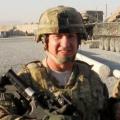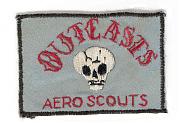http://www.twq.com/06spring/docs/06spring_hassner.pdf
Fighting Insurgency on Sacred Ground
Ron E. Hassner
"The religious implications of military operations at mosques are notoriously
complex, often vague or contradictory, always perplexing, and yet also
significant. The most obvious means of navigating this religious-legal minefield
is by eliciting the assistance of qualified guides. Religious leaders at all levels
from the imam of the mosque in question or a neighboring mosque to a leading
religious actor at the state level to a religious expert in another Muslim
country or even in the United States can provide key facts about the targeted
site, its meaning to worshippers, existing restrictions on access and behavior,
and crucial information about sensitive times and dates.
Although religious leaders should not be expected to cooperate enthusiastically
with military commanders who are plotting assaults on their mosques, the leaders
should be willing to provide information that can help minimize damage to
its most important elements, keep believers out of harmís way, and reduce
the risk of sacrilege and desecration.
If Iraqi religious leaders are willing, their cooperation with U.S. counterinsurgency
efforts can provide far more than factual information. Religious leadersí power lies
in their ability to span both religious knowledge and religious action. Because of
their expertise, they are capable of applying and interpreting formal religious rules
to changing circumstances. Cooperative religious leaders are therefore even
potentially capable of redefining the rules that govern behavior and access to sacred
places in a manner conducive to counterinsurgency efforts. Although there are limits
on religious leadersí abilities to stretch the boundaries of the sacred, the reach and
ingenuity of these limits can be surprising.
At the same time,
religious leaders who are left out of the decisionmaking process are likely to hamper
efforts to conduct successful operations (emphasis mine) in or near
sacred sites. Influential imams can enhance the value of a sacred site that is under
attack, expand its boundaries, or increase the insurgentsí freedom of operation within
its confines."











 "Its easy, boys. All we have to do is follow my simple yet ingenius plan..."
"Its easy, boys. All we have to do is follow my simple yet ingenius plan..."

Bookmarks